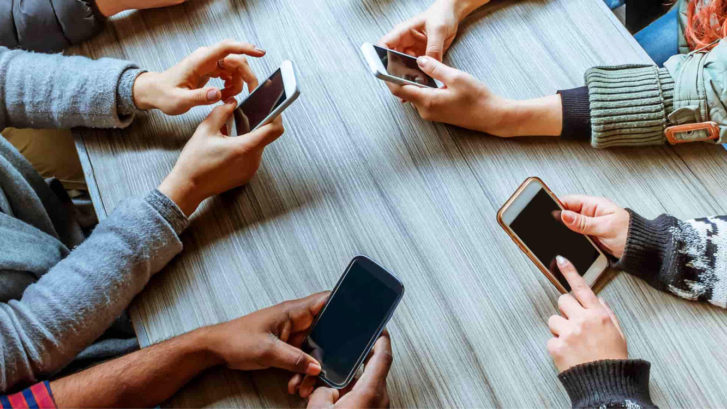Cell Phone Addiction – Is It Real?
Ninety-one percent of Americans have a cell phone. So when experts talk about cell phone addiction, many people think they may as well be talking about a car addiction, or a refrigerator addiction, or a washing machine addiction. After all, it’s just another appliance that makes our lives easier, right?
Maybe not. The definition of addiction is continued use of any substance that interferes with a person’s daily life.
We’ve all seen the videos of people falling into fountains and open construction holes because they’re so engaged with their mobile devices that they’re not paying attention to their surroundings. That’s certainly interference in their daily life.
And perhaps we’ve been out to dinner with someone who’s more interested in what’s on their phone than what we’re saying to them. This habit is so common it even has a name: phubbing, short for phone snubbing.
Because unlike a car or refrigerator or washing machine, our phones now contain so much information and so many ways to connect to other people, we really can’t do without them. They connect us to our friends and family, our favorite Internet sites, our banks, our schedules, even our home appliances. And of course, they also provide instant updates from our social circle far and wide: Facebook, Twitter, Instagram, BuzzFeed, and so on. The information may be routine, but on the other hand it may be important, so we feel required to check the notifications as soon as they come in.
Besides the well-known phenomenon of FOMO, or fear of missing out, though, is another reason we may actually become addicted in the definitional sense to our cell phones. They’re actually designed to “hook” us, in the parlance of drug addiction.
In psychologist and marketing professor Adam Alter’s book released last year, “Irresistible: The Rise of Addictive Technology and the Business of Keeping Us Hooked,” he described the various ways the technology industry deliberately designs their programs to keep users coming back to their platforms.
A reviewer in the Washington Post writes: “Alter directs his sharpest criticism at those who are intentionally designing addictive technologies – that is, much of the high-tech industry. . . . As Alter documents in case after case, using tricks and techniques such as unpredictable rewards, a misleading sense of early mastery and pop tunes that stay in your head, many if not most entertainment and technological products are now specifically designed to addict their users.”
Another book, “How To Break Up With Your Phone” by Catherine Price, makes a similar claim. She says nearly every app on your phone has been expertly engineered to produce reward responses in the brain chemistry.
“Instagram,” she offers as one example, “has created code that deliberately holds back on showing users new ‘likes’ so that it can deliver a bunch of them in a sudden rush at the most effective moment possible-meaning the moment at which seeing new likes will discourage you from closing the app.”
Rewards are the key to any addictive behavior, producing a dopamine release in the brain that impels the subject to keep coming back for more, whether it’s nicotine or heroin or constant checking of a cell phone. The National Institutes for Health (NIH) in a study on the subject, calls it “sensation seeking.”
“Although the cell phone certainly entails risks for young people and adolescents,” the authors conclude, “problematic consumption indubitably exists in adults as well.”
If you believe your cell phone use is impacting your daily life, you’re certainly not alone, and it doesn’t mean you “lack willpower.” Talk to us about it. Your concierge physicians at MD 2.0 Jupiter in Jupiter, Florida, can help you find ways to manage the habit to more seamlessly integrate your cell phone use into your life.

